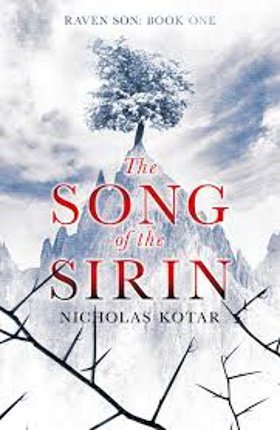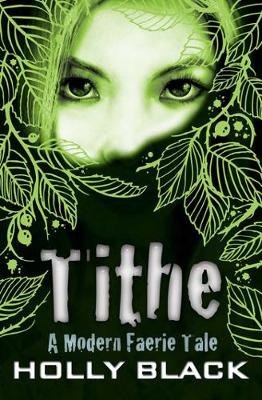Voran’s ears pricked up at his tone. There was no doubt—the Pilgrim was testing him. Something told him that much would depend on his answer. He tried to feign calmness.
“Well, it’s a bit of a misnomer, isn’t it? It’s hardly even a tree. It’s an aspen sapling. But…well, it’s on fire. Every year, the priests officiate a ceremony that summons fire from the Heights. It keeps the tree’s fire fresh, and the sapling eternally young.”
The Pilgrim looked annoyed.
“No, tell me what it is.”
Something stirred in Voran’s memory, an old story his nanny used to tell him.
“It used to be called the Covenant Tree.” The details escaped him, no matter how hard he tried. “A seal of Adonais’s promise to Vasyllia.”
“What promise?” whispered the Pilgrim, his tone urgent.
“A promise of…protection. Yes, a girdle of protection against…oh, Heights, I don’t remember.”
The Pilgrim sagged into his chair, a look of open despair in his face.
“The stag was right. How forgetful Vasyllia is. I had not realized how forgetful.”

Voran slept badly and lay awake before the sun rose. The morning fog promised to dissipate, though the clouds in his mind threatened to remain the whole day. Something must be done about it.
Not bothering to dress, Voran slipped on his boots and wrapped his bare chest with his old travel cloak. Lebía didn’t stir, even when he climbed out the window and slid down the carved lintel to the gardens below, to the brook that Otchigen, with the Dar’s blessing, had redirected from one of the city’s canals. Their own private river.
At least I can thank you for this one good thing, Father, Voran thought.
Throwing off his boots and cloak, he flung himself into the water, bracing for the icy shock. It was immediate and glorious, the sun inside his head bursting apart his huddled thoughts. As he rose again into the cold, he laughed with pure exhilaration.
Afterward, he sat by the river, wrapped in his cloak, which did little to stave off the late autumn chill. The momentary euphoria of the swim had faded, leaving behind nagging unease. The song of the Sirin, which would often tease him after his morning wash, had stopped entirely since his encounter with the stag.
“Early riser, Voran?” The Pilgrim materialized out of nowhere, making Voran’s heart attempt a desperate leap out of his chest. Voran laughed, shaking with more than the cold.
“Good morning, Pilgrim.” He gestured for the Pilgrim to sit. “I could not sleep. Too many questions.”
“Have you considered that you may not understand the answers yet, even if I told you everything? In any case, I am eager this morning to take part in the feasting before the walls. Will you come with me?”
Inwardly, Voran groaned, but he nodded. “It would be my honor.”
Though it was early, already many people were huddled around their makeshift hearths in the fields, busy with breakfast. There was a joyful tenseness in the air; Vasyllia had not yet tired of waiting for the success of the hunt. Already a bustling marketplace stood ramshackle around the storytelling stage.
The married women in headscarves with temple rings, the young women with their hair unbound or in the tell-tale single braid—they all regarded Voran and the Pilgrim with smiles that rarely lit their eyes. The men, in tall beaver hats and wide, sweeping coat-sleeves, barely looked at them before passing on to the more important business of the day.
Pipers and fiddlers danced and spun about among the people, sometimes narrowly missing colliding with them, to general comic effect.
Again, that nagging sense that something was missing bothered Voran. It was as though Vasyllia were a woman far past her prime, who still painted her face in the fashion of newly-married youth.
The Pilgrim showed little interest in the usual wares—ceramics, fabrics, trinkets fashioned from wood, some of which sang on their own, some of which moved about in choreographed figures. The chalices of gold did not hold his attention; the woven tapestries may as well have been rags. He walked past the most ornate stalls with hardly a glance, though many of the merchants’ wives, impressed with his mien, tried their loudest to attract his attention.
Like hens flapping their wings to attract a cockerel, Voran thought.
The only stall that seemed to interest the Pilgrim was that of an old potter. It was hardly a stall at all, rather a tattered canvas hung over a frame of grey wood. It stood at the farthest edge of the market, surrounded by refuse. The potter, who smelled as bad as his teeth looked, could not even speak from surprise when the Pilgrim approached him.
All of his wares were plain, unglazed, though Voran sensed that they were made with great skill. The Pilgrim seemed to think so as well. He pointed at an urn of perfect proportion, smooth and undecorated. A hand-written rag sported the price: two copper bits. Voran winced at the price. This potter must have no business at all, if he was willing to sell his handiwork for so little.
“May I buy this?”
The potter stuttered something unrecognizable.
“I’m sorry, my brother,” said the Pilgrim. “I did not hear you.”
The potter’s eyes changed. Their dull yellow cleared to white, and something in them sparked. To Voran’s surprise, the potter seemed to shed his years before their eyes. He wasn’t old at all. He was hardly more than forty.
“From a traveler, I ask nothing but blessing,” he said. “Take it with my thanks.”
Voran was taken aback. The man spoke in a beautiful accent, similar to how the old priests spoke. It was a pleasure merely to listen.
“May you be blessed, my brother,” said the Pilgrim.
The potter continued to watch after them as they walked back to the center of the market. Shame nagged at Voran, though he couldn’t exactly explain why.
The Pilgrim returned to the center of the marketplace, where the tallest hats and the shiniest temple-rings congregated. Approaching a ceramics merchant, he pointed to an urn twice the size of the potter’s, glazed and hand-painted with fanciful images of animals and plants interweaving so tightly it made the head spin.
“Ah, you have quite the eye, good sir,” simpered the merchant, his five jowls quivering with subservience. “Best Nebesti make, that is.”
The Pilgrim raised the decorated urn in his right hand, the potter’s simple clay in his left. The crowd stilled. Just before it happened, Voran saw it in his mind’s eye, and he had to stop himself from laughing.
“Sudar,” said the merchant, using the honorific of respect for a person of indeterminate social class, “may I ask what you intend…”





















